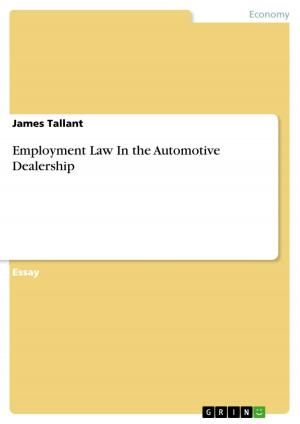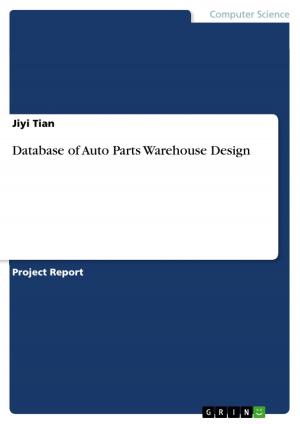The Role of the Underwriter in the Initial Public Offering Process
Business & Finance, Finance & Investing, Banks & Banking| Author: | Georgi Georgiev | ISBN: | 9783638630313 |
| Publisher: | GRIN Publishing | Publication: | May 1, 2007 |
| Imprint: | GRIN Publishing | Language: | English |
| Author: | Georgi Georgiev |
| ISBN: | 9783638630313 |
| Publisher: | GRIN Publishing |
| Publication: | May 1, 2007 |
| Imprint: | GRIN Publishing |
| Language: | English |
Bachelor Thesis from the year 2005 in the subject Business economics - Banking, Stock Exchanges, Insurance, Accounting, grade: 1,7, Martin Luther University, 38 entries in the bibliography, language: English, abstract: The world of finance is complex. There are many aspects, which cannot be fully explained and still confuse the researchers. One of the most discussed topics is that of Initial Public Offerings (IPO) mainly because of the intricate connections between investment bankers (underwriters), issuers and buyers. This paper will try to summarize the whole process of going public and emphasize on the role of the (lead) underwriter in it. The paper discusses mainly the American 'way' of going public, but the procedure is generally the same for the European market with some differences that are explained in the text. The advantages, disadvantages and the legal requirements for going public are enlightened, in order of understanding the important role, which the underwriter plays in the whole process. The structure and the legal consequences of the due diligence process are presented. The types of agreement between the underwriter and the issuer are described, with the consequences that originate from them. The ways of determining the price and the advantages and disadvantages of any of them are presented, with respect to the importance of the underwriter's role in them and the liabilities that she has. The problem with the underpricing is discussed more detailed, since this is one of the big challenges in the IPO process. Some theories that explain this phenomenon are briefly discussed, showing the mechanism that is behind the underpricing problem. Some of the unlawful allocation practices are listed, with examples that show that even the top underwriters use prohibited actions to ensure the successful completion of the IPO process. The importance of the pre-opening period for the determination of the right market price and the active participation of the underwriter in the bidding during the first day of the offering is emphasized, as well as the fact that the reputation of the underwriter is one of the most important qualities that she possesses, with respect to the choice of underwriter, the initial returns and the long-run underperformance of the IPO stocks.
Bachelor Thesis from the year 2005 in the subject Business economics - Banking, Stock Exchanges, Insurance, Accounting, grade: 1,7, Martin Luther University, 38 entries in the bibliography, language: English, abstract: The world of finance is complex. There are many aspects, which cannot be fully explained and still confuse the researchers. One of the most discussed topics is that of Initial Public Offerings (IPO) mainly because of the intricate connections between investment bankers (underwriters), issuers and buyers. This paper will try to summarize the whole process of going public and emphasize on the role of the (lead) underwriter in it. The paper discusses mainly the American 'way' of going public, but the procedure is generally the same for the European market with some differences that are explained in the text. The advantages, disadvantages and the legal requirements for going public are enlightened, in order of understanding the important role, which the underwriter plays in the whole process. The structure and the legal consequences of the due diligence process are presented. The types of agreement between the underwriter and the issuer are described, with the consequences that originate from them. The ways of determining the price and the advantages and disadvantages of any of them are presented, with respect to the importance of the underwriter's role in them and the liabilities that she has. The problem with the underpricing is discussed more detailed, since this is one of the big challenges in the IPO process. Some theories that explain this phenomenon are briefly discussed, showing the mechanism that is behind the underpricing problem. Some of the unlawful allocation practices are listed, with examples that show that even the top underwriters use prohibited actions to ensure the successful completion of the IPO process. The importance of the pre-opening period for the determination of the right market price and the active participation of the underwriter in the bidding during the first day of the offering is emphasized, as well as the fact that the reputation of the underwriter is one of the most important qualities that she possesses, with respect to the choice of underwriter, the initial returns and the long-run underperformance of the IPO stocks.















